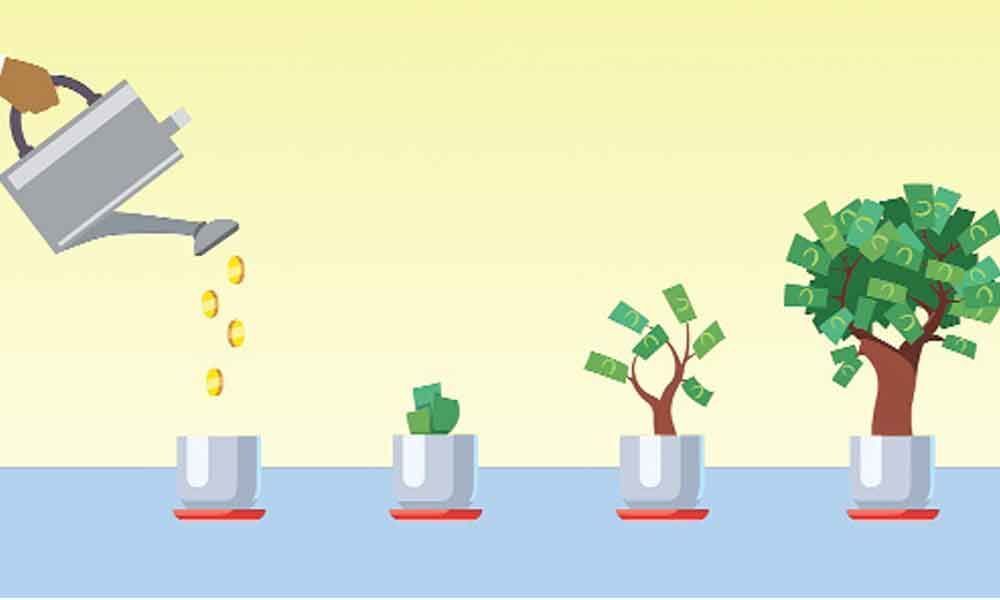The investment thesis of future

While the recent volatility in the stock markets have hurt the investors badly, they’re also more aware of the cyclical nature of the markets.
While the recent volatility in the stock markets have hurt the investors badly, they're also more aware of the cyclical nature of the markets.
This may be due to their experience of how the boom created post the bust and also after a continued drawdown in the markets, many seem to believe that the bottom is nearing and/or feel has bottomed in many of the stocks.
They believe this is the time to move the 'smart money' into the market for investing for long. Now, the query I'm bombarded constantly is - which is the stock(s) that could be a multi-bagger (the stock price that multiplies exponentially over years) or which is the stock(s) that I could retain for long or for lifetime.
I precisely don't have answers to these questions but possibly give an indication of what characteristics to consider for identifying. It's difficult due to the pace at which companies and their businesses are changing.
This is partly due to the technological advancements while the rest due to the everchanging consumer preferences. The recent slowdown in auto sector (demand slackening in the personal car) is partly attributed to the new generation earners who don't really see a personal car as a prized possession or a mundane mode of commute.
Also, the improved penetration of public transport (metro rail, etc.), higher maintenance (fuel, insurance & other costs) and increased vehicular congestion in cities has changed their preferences.
They would rather want to be part of the 'share-economy' and so use the various apps to hire (along with other) or share (from the same residential area or workplace).
The changing job nature and their requirements i.e. work-from-home, anywhere work, contract working, freelancing, co-sharing workplaces, etc. have also reduced the overall commute.
Conventionally, most of the first-car purchases are part-financed and the changing work behavior has rubbed on to their commitment towards loans. This generation's awareness about the vehicular pollution, their effects on overall health and their increased consciousness about the carbon footprint has added to their belief.
The younger generations are early adapters of these technology changes and are the primary drivers of this economy. Their choices led to gaps in the way these services could be reached and has successfully influenced the thought leaders to come up with business solutions around it.
The emergence of new unicorns extends from varied businesses of social networking to ridesharing to food-delivery to learning material to payment gateways to hotel room aggregators to financial services marketplace to news aggregators and even to electric (semi) autonomous vehicles.
In one of my earlier articles on purchase of home, I'd asked the potential buyers to think a bit ingenious in terms of the job specifications, mode of transport and overall lifestyle changes of the future to be the parameters of choosing a location than the current situation.
Similarly, if one were to invest for lifetime (which means it might translate to an estate) how inventive one has to be.
If one were to look at the top 10 companies of S&P 500 (of the US) at the end of each decade starting from 1980s (including the 2019s nearing 2020) then only Microsoft has managed to be in the list for the last three decades (it was listed in 1986).
The other is Exxon which was in the list all the periods of time (though Mobil was merged). Apple too features in the last two decades and Royal Dutch appears twice (in '80s & 2000's).
If we were to observe the sector concentration of the companies changed with times. However, what's more interesting is the latest evolution of the technology stocks (Amazon, Alphabet, Apple, Facebook, Alibaba, Tencent & Microsoft included) whose businesses no more are restricted to developing tech but also into finance, trade, investing, etc.
They have already replaced many traditional businesses and would like to disrupt further while unleashing newer technologies like Cloud Computing, Machine Learning, Internet of Things and Artificial Intelligence into our daily lives, each of these themselves independently have the potential to evolve into separate businesses.
At this pace of change, how does one now pick one or few stocks and stick for lifetime? And should that desist us from doing it, creating multi-bagger returns to us? It's no more the fittest of the survival or natural selection - the two main Darwinian themes, the traditional views on evolution are being questioned.
Time has come to survival of the adaptive and artificial selection - the new theme for companies. The new regulations would bring up systemic changes to the business environment and those who're adaptive would be adopted by the consumers.
Investors should identify those companies which have the appetite to embrace change and look at the quality of the management of these companies. Those which are brave enough to not just accept change but bring change will be more successful.
(The author is a co-founder of "Wealocity", a wealth management firm and could be reached at [email protected])








